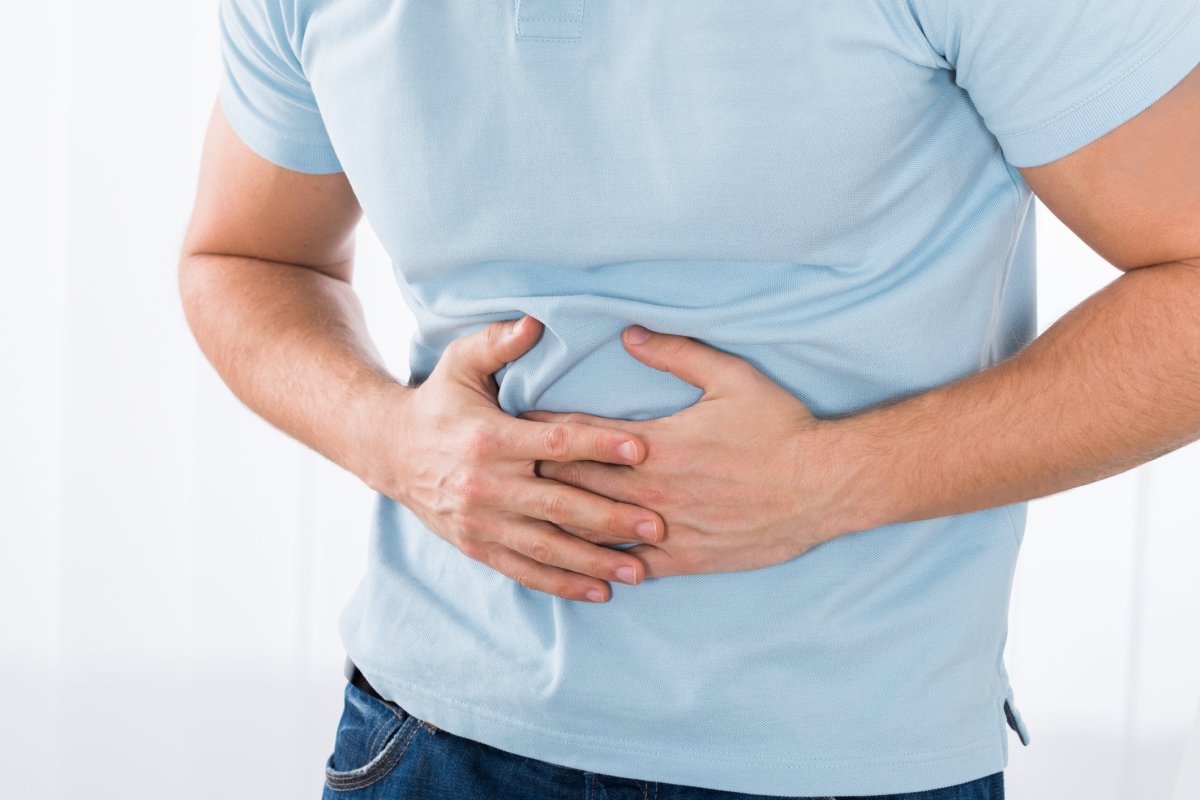Experiencing discomfort or pain after eating is not uncommon and can there can be several things that may trigger the feeling – the problem is pinpointing what that trigger is, and it doesn’t necessarily mean it’s always medical.

In fact, it can often come down to the types of foods you’re eating and how our body is responding to them, experts say.
READ MORE: Signs you’re not getting enough calcium, vitamin A or vitamin D – and why it matters
“If you are experiencing stomach pain or changes in bowel movements, take action to discover the underlying cause,” registered dietitian Andrea D’Ambrosio of Dietetic Directions says. “This can be a challenge when major underlying medical reasons are ruled out.”
So what could be some causes of your upset stomach?
D’Ambrosio and fellow registered dietitian Andy De Santis reveal some possible reasons.
Reasons your stomach may be upset
Bloating and/or constipation
According to De Santis, a high fat, low fibre meal, or many of those types of meals in a row – like burgers or pizza – will move through your system slowly and could cause constipation.
Nervous tummy
Some may feel uncomfortable with eating certain foods, D’Ambrosio says. Or, emotional triggers may disrupt how your stomach feels.
Gastroesophageal reflux disease (or GERD)
Also referred to as acid reflux, certain triggers like spicy food, caffeine and alcohol, may make symptoms worse, De Santis says.
Food poisoning
Food poisoning is usually caused by a bacteria commonly found in raw or undercooked animal products like meat and eggs, De Santis explains. It could spread from these foods to other items due to poor food handling and safety practices.
Food allergies
“A severe, life-threatening response that involves your immune system may lead to rash, swelling and trouble breathing, but also could have digestive symptoms,” De Santis says. “Common allergen foods include eggs, soy, wheat, dairy, nuts, shellfish, etc.”
Food intolerance
“A food intolerance occurs when your body, for whatever reason, struggles to properly digest a component of a food,” De Santis explains. “Lactose intolerance – an inability to breakdown the sugar lactose in dairy – is the most common example.”
How to fix your upset stomach
“Digestive health issues can be extraordinarly complex and may often require further guidance from a medical professional in complex cases,” De Santis says.
In less severe cases, however, consider trying a food diary to help identify the foods that may be more likely to cause you pain, he adds.
Eating a healthy, balanced diet while avoiding trigger or trouble foods is also ideal and should be your first defense.
When the problem is medical
At other times, however, your sore stomach may be due to an underlying medical condition, D’Ambrosio and De Santis say. For example, gallstones, pancreatitis, irritable bowel syndrome (IBS) and other inflammatory conditions like Crohn’s disease.
With IBS in particular, D’Ambrosio says the Low FODMAP diet is often a solution dietitians suggest.
READ MORE: 8 types of food to avoid if you have irritable bowel syndrome
“The term FODMAP describes a collection of short-chain sugars that are poorly digested in the gut,” D’Ambrosio explains. “For people with IBS, poorly digested sugars can trigger symptoms of abdominal pain, bloating and changes in bowel movements when they are broken down or fermented by colon bacteria. FODMAPs cause the bowel to distend by drawing more fluid and generating more gas by gut bacteria fermentation.”
The main point of the diet is to replace sugars that are high is FODMAPs with sugars that are low in FODMAPs, which are easily broken down by the stomach. They also relieve digestive distress and decrease the fermentation of sugars in the colon, which often trigger symptoms, D’Ambrosio adds.
If you suspect that may be the case, both dietitians recommend consulting a family physician and/or registered dietitian.
“If you are living with chronic unmanageable abdominal pain or symptoms such as gas, bloating, diarrhea and constipation, it makes sense to seek help right away,” De Santis advises.





Comments